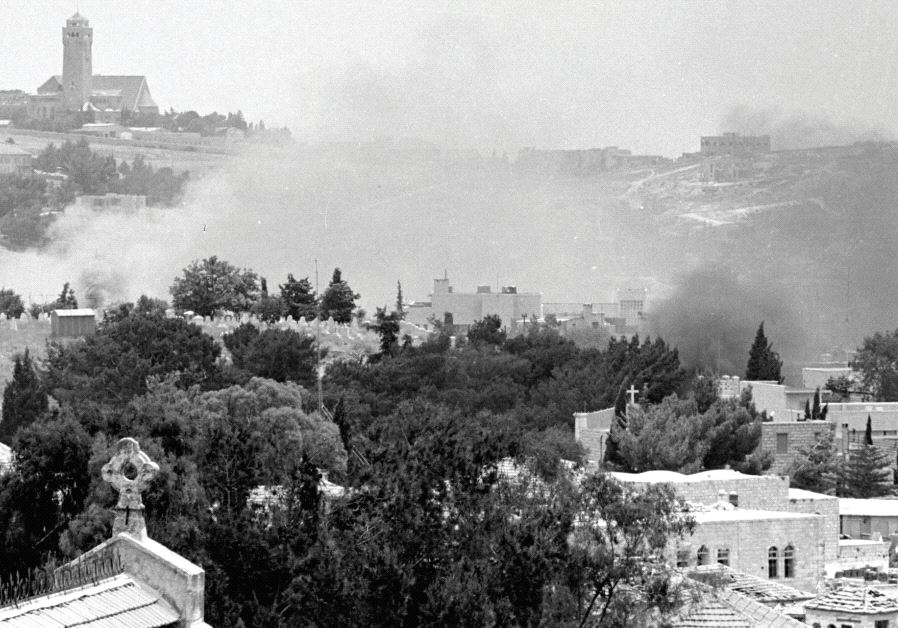'Like Dreamers' author on the Six Day War's true impact
Author Yossi Klein Halevi discusses how 1967 profoundly changed Israel and leaves us wrestling with tough questions a half century later
 Smoke rises in east Jerusalem during a battle in the Six Day WarUpdated:
Smoke rises in east Jerusalem during a battle in the Six Day WarUpdated: